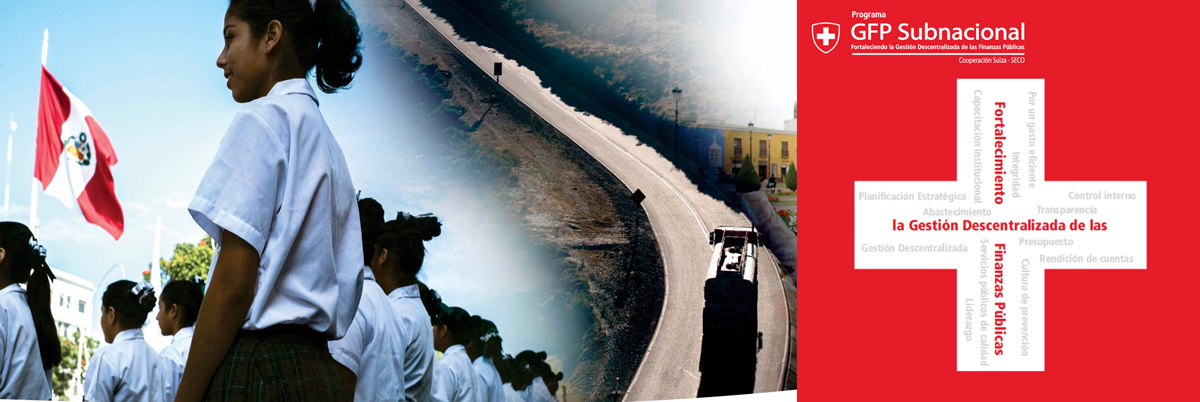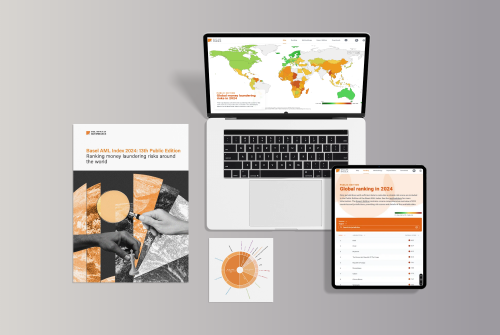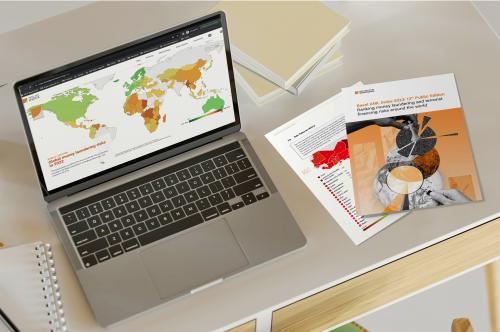Public Finance Management programme in Peru achieves flying colours and enters a new four-year phase

We are happy to announce that our Public Finance Management programme in Peru has been extended for another four years, following an excellent performance in the programme’s external evaluation.
Launched in 2015 and run out of our regional office in Lima, the programme is funded by the Swiss State Secretariat for Economic Affairs (SECO). It aims to strengthen public financial management among 11 local and regional governments in Peru.
Action and achievements
Efforts in the first four years focused on five areas:
- Budget cycle processes
- Transparency and accountability
- Institutional capacity
- Coordination with central government
- Asset recovery
The numbers alone give a sense of the team’s achievements.
229 public officials have graduated with a specialised Diploma in Management and Public Finances, developed and delivered in collaboration with Universidad ESAN. Over 3,350 have completed online training in tools for monitoring budget execution and open government. Another 8,000 have attended hands-on workshops and conferences across the country.
The team has assisted the 11 subnational government authorities in drawing up clear plans and processes for managing public finances, and provided technical assistance to 163 administrative units in implementing an integrated management system.
Lessons learned have contributed to five new proposed protocols for dealing with different aspects of budgetary macro-processes (all available in Spanish on the programme website).
But the numbers tell only a small part of the story.
Innovation and culture change
All eleven subnational governments in the programme have implemented codes of conduct for their employees, based on a participatory methodology developed by our specialists. Some of Peru’s central government ministries, including the Ministry of Finance and Ministry of Energy and Mines, have now adopted this methodology.
Graduates of the diploma programme have set up a Public Finance Management Experts Network, showcasing and building on the bottom-up momentum. With support from the team, the Network is now snowballing across the country and already helping to facilitate dialogue with the central Peruvian government.
Also within the framework of the programme, senior managers and technical representatives from the involved 11 subnational governments have worked with the PEFA Secretariat on a pioneering project to enhance Public Expenditure and Financial Accountability evaluations. The focus is on action plans, not just evaluations.
Public accountability consultations held recently by several subnational government are just another example of the culture change taking place within Peru with regard to transparency and accountability in public financial management.
Strengthening asset recovery capacity
In collaboration with the Basel Institute’s International Centre for Asset Recovery, our Peru team has contributed to the return of USD 40.7 million in stolen assets. So far.
1,280 law enforcement and judicial officials have been trained in asset recovery techniques and the use of international cooperation mechanisms such as mutual legal assistance.
The team is also providing technical guidance in the establishment of an Asset Recovery Office in Peru. Some groundbreaking cases are putting legal instruments including plea bargaining and non-conviction-based confiscation to the test.
Moving the needle
“Thanks to our willing, motivated partners in the subnational and central government authorities and to SECO’s generous support, we’ve succeeded in moving the needle to the right in most of the subnational governments assisted by the Programme,” said Oscar Solórzano, Manager of the Basel Institute’s Lima office.
“But there’s still a lot of work to be done – which is why we’re delighted to have received the four-year extension. The priorities now are support for public investment planning, procurement and tax collection at the subnational level. Watch this space.”



